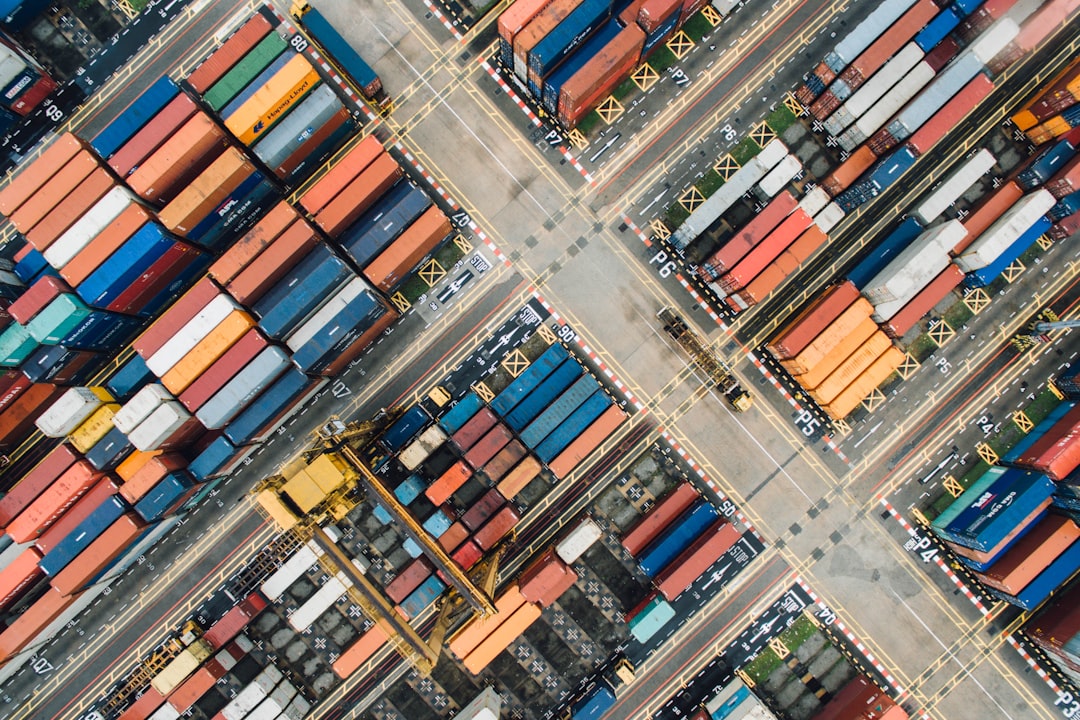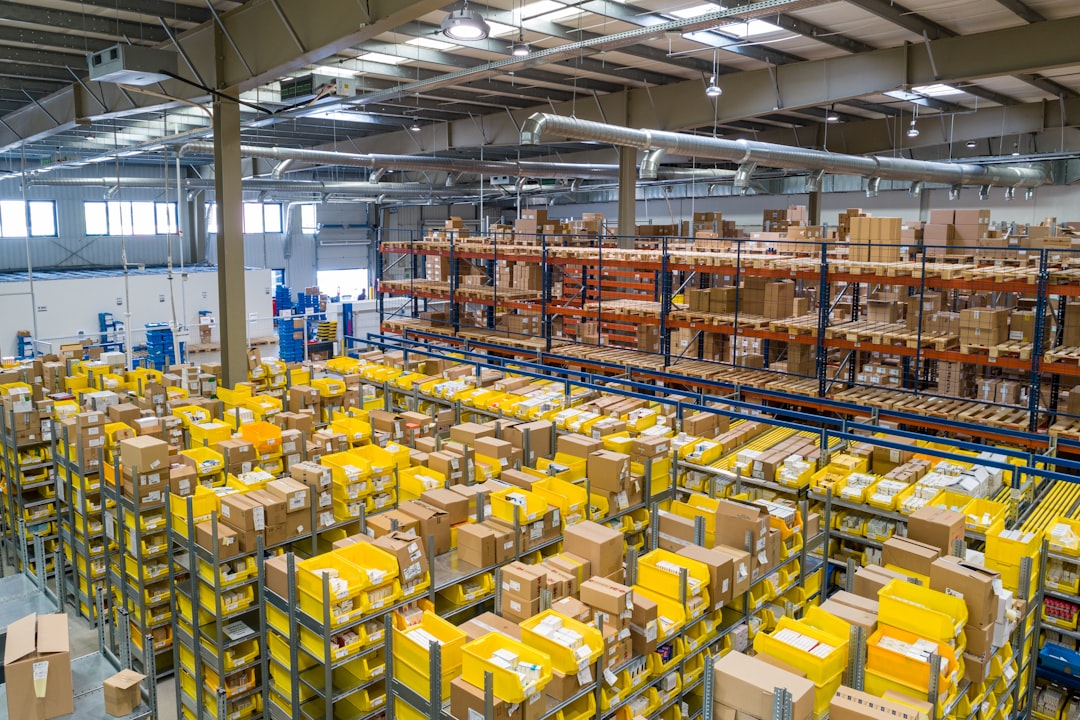In recent years, supply chain management has evolved into a complex and intricate process that requires meticulous attention to detail, accuracy, and transparency. For organizations seeking to optimize their supply chain efficiencies, reduce costs, and boost customer satisfaction, blockchain technology has proven to be a game-changer. In essence, blockchain facilitates the sharing of information and transactions across multiple parties in a secure and transparent manner, offering various benefits for supply chain management.
Blockchain, which is essentially a decentralized digital ledger, provides an immutable record of every transaction; it allows multiple parties to view and verify transactions in real-time, and it helps organizations to synchronize their operations with those of their partners. Furthermore, blockchain’s cryptographic protocols provide an unbreakable layer of security, protecting data from counterfeiting, fraud, or tampering.
With these and other benefits, blockchain technology has become increasingly popular among businesses looking to streamline their supply chain operations. In this blog post, we will discuss the role of blockchain in supply chain transformation, highlighting its key benefits such as traceability, transparency, efficiency, security, sustainability, and more. We will explore how blockchain can address some of the challenges facing supply chain management today and provide some examples of how the technology has already been implemented in real-world scenarios.
Join us as we delve deeper into the exciting world of blockchain and shed some light on how this technology is revolutionizing the fundamentals of supply chain management.
Traceability: Tracking and Tracing Goods with Cryptography
When it comes to supply chain management, traceability plays a crucial role in ensuring the consistency and quality of goods through every stage of the process. Blockchain technology offers an unparalleled solution for tracking and tracing goods with the help of cryptography.
With blockchain, every transaction is recorded on a digital ledger that can be accessed and reviewed at any time. Records are encrypted and stored across a network of computers, making them transparent, tamper-proof, and immutable. This level of transparency and security allows organizations to track goods from their origin to their final destination, ensuring the integrity of the supply chain.
Blockchain technology also offers the ability to tag goods with unique identifiers, allowing them to be tracked from the factory floor to the store shelf. These identifiers can include everything from barcodes to RFID tags, allowing for seamless tracking and traceability.
As a result, blockchain technology has the potential to revolutionize supply chain management by providing the tools necessary to combat fraud, counterfeiting, and other forms of malign activity. By creating a single source of truth that can be accessed by stakeholders throughout the supply chain, blockchain will make it easier to keep track of products, monitor their progress, and ensure that they are delivered on time and in good condition.
Overall, traceability is a vital component of supply chain management, and blockchain technology offers an innovative and secure way to track and trace goods throughout the supply chain. By leveraging the power of cryptography, organizations can ensure that their products are delivered safely and securely, while also improving efficiency and reducing costs.
Records are encrypted and stored across a network of computers, making them transparent, tamper-proof, and immutable.
Transparency: Shining a Light on Supply Chain Operations
Transparency is a critical aspect of supply chain management, as it allows retailers, manufacturers, and suppliers to have a clear view of what is happening within the supply chain. When products move from one location to another, it is important to have visibility into every aspect of that movement to ensure that the products are safe, secure, and of high quality.
One of the biggest challenges of traditional supply chain management is the lack of transparency. When products are shipped from one location to another, there is often a lack of visibility into the various stages of the journey. This makes it difficult for retailers to manage inventory levels, predict delivery times, and ultimately, satisfy customer needs.
With the implementation of blockchain technology, supply chain transparency can be significantly improved. Blockchain allows for the creation of an immutable and transparent ledger that records every transaction that takes place within the supply chain. This means that every time a product moves from one location to another, the transaction is recorded on the blockchain, providing a clear and unalterable history of the product’s journey.
With this transparency, suppliers and retailers can easily track the movement of goods in real-time, enabling them to make timely decisions to optimize their supply chains. In situations where there are delays or disruptions, blockchain technology can quickly identify where the issues are occurring, allowing for quick and targeted solutions.
Additionally, blockchain can improve supply chain transparency by making it easier to detect fraudulent activities. When an entry is made on the blockchain, it is verified by a network of peer-to-peer nodes. This verification process ensures that only legitimate transactions are recorded on the blockchain, reducing the likelihood of fraudulent activities.
In conclusion, transparency is a critical factor in improving the efficiency and effectiveness of the supply chain. Blockchain technology is an ideal solution for creating transparency within the supply chain, as it allows for the creation of an immutable and transparent record of all transactions that occur within the supply chain. By leveraging blockchain technology, suppliers, manufacturers, and retailers can create a more efficient, effective, and transparent supply chain that benefits everyone involved in the process.
Additionally, blockchain can improve supply chain transparency by making it easier to detect fraudulent activities.
Efficiency: Streamlining Logistics with Smart Contracts
In traditional supply chain management, logistics can be a complex and time-consuming process. From managing multiple vendors to ensuring on-time delivery, there are numerous challenges that businesses face. However, blockchain technology can significantly improve supply chain efficiency through the use of smart contracts.
Smart contracts are self-executing programs that automatically trigger the transfer of assets or payment when certain conditions are met. In a supply chain context, this means that contractual agreements can be automatically executed once certain conditions, such as the delivery of goods, are met. This not only saves time but also reduces paperwork and eliminates the need for intermediaries.
By leveraging smart contracts, businesses can streamline logistics and reduce costs. For example, blockchain technology can be used to verify the authenticity of products and ensure that they are delivered on time. This can be done by creating a smart contract that includes the product specifications, delivery deadlines, and payment terms. Once the product has been delivered and verified, the smart contract will automatically release payment to the supplier.
In addition to simplifying logistics, smart contracts can also enhance supply chain collaboration. By creating a transparent and secure network, smart contracts can be shared among different parties in the supply chain, providing each party with access to real-time information. This can facilitate better communication and collaboration among stakeholders, leading to improved efficiency and fewer errors.
Moreover, smart contracts can also help to reduce the risk of fraud and errors. As transactions are recorded immutably on the blockchain, there is a reduced risk of tampering, ensuring the authenticity of the information. This helps to prevent errors and fraud, improving the accuracy and reliability of the information.
In summary, smart contracts offer a powerful solution for streamlining logistics in the supply chain. Through automation, collaboration, and increased security, businesses can reduce costs and improve efficiency, resulting in a more effective supply chain management process.
As transactions are recorded immutably on the blockchain, there is a reduced risk of tampering, ensuring the authenticity of the information.
Security: Protecting Supply Chains from Counterfeiting and Fraud
The security of supply chains is a major concern for businesses and consumers alike. Traditionally, companies have had to rely on paper-based systems and trust-based relationships to ensure that their goods are not counterfeited or tampered with during transportation. However, these systems are prone to errors and vulnerabilities that can be exploited by fraudsters.
Enter blockchain technology, which provides an immutable and transparent ledger that can be used to store and track every transaction that occurs within a supply chain. By utilizing cryptography and consensus mechanisms, blockchain networks are virtually tamper-proof, providing businesses with a secure and reliable means of exchanging goods and data.
One major use case for blockchain in supply chain security is the authentication of products. Blockchain-based systems can be used to create secure digital identities for each item or batch being transported, which can then be tracked and verified as they move through the supply chain. This provides businesses and consumers with the ability to verify the authenticity of products, reducing the risk of counterfeit goods making their way into the marketplace.
In addition to authentication, blockchain can be used to track and monitor the condition of products in transit, ensuring that they are not tampered with or damaged during transportation. This is particularly important for high-value items, as well as goods that require special handling or storage conditions.
Another major benefit of blockchain in supply chain security is the ability to prevent fraud. By using smart contracts to automate the exchange of goods and payments, businesses can reduce the risk of fraud and errors that can occur with traditional paper-based systems. This not only improves the security of the supply chain, but also reduces overhead costs and eliminates the need for intermediaries.
Overall, blockchain technology is revolutionizing the way that businesses approach supply chain security. By providing a secure and transparent platform for data exchange and transactions, blockchain networks are enabling businesses to protect their goods from counterfeiting and fraud, while also improving efficiency and reducing costs. The future of supply chain security is bright, thanks to the innovative solutions that are being developed using this powerful technology.
By using smart contracts to automate the exchange of goods and payments, businesses can reduce the risk of fraud and errors that can occur with traditional paper-based systems.
Sustainability: Promoting Ethical and Environmentally-Friendly Practices
Blockchain technology offers a unique opportunity to improve the sustainability of supply chains. By enabling a permanent, tamper-proof ledger of information, blockchain helps ensure ethical and environmentally-friendly practices across the supply chain.
One of the primary benefits of blockchain is that it allows companies to track the origin of their goods and verify that they were produced using ethical and sustainable manufacturing processes. This can range from ensuring that goods are made in factories with safe working conditions to verifying that they were produced using environmentally-friendly materials and methods.
Using blockchain technology also helps to prevent fraud and other unethical practices in the supply chain. Each step in the supply chain is recorded on the blockchain, making it more difficult for dishonest actors to exploit gaps in the system.
Another benefit of blockchain technology is that it allows for greater transparency and accountability in the supply chain. By providing a permanent record of transactions and activities, it is easier for stakeholders to hold companies accountable for their actions and their impact on the environment.
Finally, blockchain technology can also be leveraged to facilitate the adoption of circular economy principles. By providing a secure platform for the tracking and trading of recycled materials and waste products, blockchain can help reduce waste and promote sustainable resource use.
In conclusion, sustainability is an important consideration for companies looking to improve their supply chain operations. By using blockchain technology, companies can ensure that their products are produced using ethical and environmentally-friendly practices, reduce fraud, increase transparency and accountability, and promote the adoption of circular economy principles.
This can range from ensuring that goods are made in factories with safe working conditions to verifying that they were produced using environmentally-friendly materials and methods.
The Future of Supply Chain Management with Blockchain
In this modern age of technology, industries are rapidly advancing towards innovative ways to improve their processes. The supply chain industry is no exception. In the past, the supply chain process was fraught with inefficiencies and a lack of transparency. However, with the advent of blockchain technology, there has been a major transformation in the way supply chains operate.
Blockchain technology has allowed companies to redefine the supply chain process, and the benefits are clear. Traceability has been improved, enabling companies to track and trace goods with cryptography, which ensures authenticity and reduces the risk of fraud. Transparency has been promoted, whereby the supply chain process is made more visible to all stakeholders, from manufacturers and distributors to retailers and consumers.
Efficiency has also been enhanced, thanks to the use of smart contracts. Smart contracts eliminate the need for intermediaries, thus reducing the time and cost associated with the supply chain process. More importantly, security measures have been strengthened against counterfeiting and fraudulent activities, which are serious challenges that industries face today.
The use of blockchain technology is not only beneficial for businesses, but also for the environment. By promoting ethical and environmentally-friendly practices, blockchain technology is helping drive sustainability efforts around the world. With blockchain, businesses can track products from their source to consumption, making it easier to assess environmental impact and ensure sustainability from start to finish.
In conclusion, the role of blockchain technology in revolutionizing supply chain management cannot be understated. As more companies embrace its benefits, it is becoming increasingly clear that blockchain technology is the way forward for the industry. The future of supply chain management is bright with the use of blockchain, and businesses that rely on a efficient, secure, and transparent supply chain process will benefit greatly from it.





